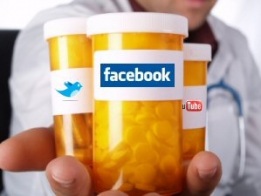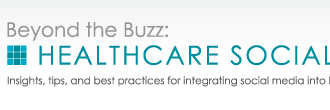Recently, there has been a great deal in the press surrounding organ transplantation. Sara Murnhagan, the courageous little girl with end stage cystic fibrosis, captured the nation’s attention as she waited for a life saving lung transplant. The organ transplantation and procurement system in the US today is not without flaws. Organs are at a premium and finding the best way to allocate them to matched patients who need them the most is a daunting task.
Recently, there has been a great deal in the press surrounding organ transplantation. Sara Murnhagan, the courageous little girl with end stage cystic fibrosis, captured the nation’s attention as she waited for a life saving lung transplant. The organ transplantation and procurement system in the US today is not without flaws. Organs are at a premium and finding the best way to allocate them to matched patients who need them the most is a daunting task.
 Today, nearly 120,000 people (men, women and children) are actively waiting for organ transplantations and are listed on the UNOS. However, only 29,000 organ transplants were performed in 2012. Obviously the demand far exceeds the supply for suitable organs for patients who need transplantation for survival. Paradoxically, 90% of Americans say that they support organ donation but only 20% have taken the necessary steps to be a donor. The rate of registered donors has remained static over the last twenty years while the numbers of those waiting for transplantation has increased 20 fold over the same time period.
Today, nearly 120,000 people (men, women and children) are actively waiting for organ transplantations and are listed on the UNOS. However, only 29,000 organ transplants were performed in 2012. Obviously the demand far exceeds the supply for suitable organs for patients who need transplantation for survival. Paradoxically, 90% of Americans say that they support organ donation but only 20% have taken the necessary steps to be a donor. The rate of registered donors has remained static over the last twenty years while the numbers of those waiting for transplantation has increased 20 fold over the same time period.
Researchers are actively engaged in clinical investigations designed to identify better ways to recruit potential organ donors. In order to improve the availability of organs for those in need we must find a better way to successfully register potential donors and allocate organs. In particular, certain groups such as minorities and children are poorly represented as registered donors.
Our society today is more connected than ever. Social media outlets including Twitter, Facebook, and YouTube are easily accessible and widely utilized. In particular, Facebook is one of the most commonly visited websites in the world–second only to google. Facebook is often the first stop for those who begin their exploration of the world of social media. Facebook has become a great place to connect and to share ideas and news. In addition, Facebook has been a place to inform others of an important cause or event.
Researchers at Johns Hopkins reported on a demonstrated effect of Facebook on organ donor registration rates. In the report, the rate of increase was nearly 21-fold in one day–this was a day in May 2012 when Facebook allowed users to make their organ donor status public on the site (and also provided easy links to DMV sites so that users could make their status official). On the first day that the new service was available on Facebook there were over 13,000 new DMV organ donor registrations–as compared to an average day where there are only 600 new registrations in a day. This enormous bump in organ donor registration demonstrates the power of social media to move people towards action in ways that can benefit others. Social media outlets such as Facebook are not only a great place to share pictures and reconnect with friends–they can be a new way to effect social change.
In medicine, we have only begun to scratch the surface of the full potential of social media. It is imperative that physicians begin to interact virtually and engage fully in social media in order to effect change. As we have seen with the New York Stock Exchange, social media outlet such as twitter can move markets (reference the largest 3 minute drop in the Dow in history when the AP twitter account was hacked). WE must ALL work together to realize the untapped potential of social media in medicine–it can save lives–improve health–and even provide a large number of new registered organ donors.








